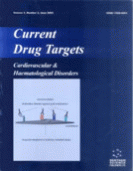Abstract
Ca2+ is an important secondary messenger and any alteration to intracellular Ca2+ signaling pathways or components of these pathways can have a profound physiological effect on any cell, particularly cardiomyocytes. Early approaches to investigate heart disease focused on many muscle proteins, however recent findings indicate that molecules considered as “non-muscle” proteins may be equally important players in etiology of many cardiac pathologies. Many of these “non-muscle” proteins play a role in Ca2+ cycling or Ca2+-dependent signaling pathways in the heart. In this review we focus on Ca2+ -dependent pathways in normal, growing, and diseased hearts. Understanding of these unique signaling pathways may hold answers to many cardiac pathologies in children and adults.
 10
10













